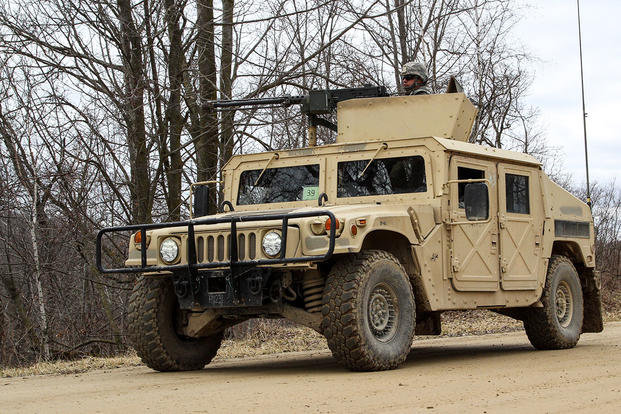Discover your perfect career path and get customized job recommendations based on your military experience and vocational interests with Military.com's Military Skills Translator + Personality Assessment.
Military service members face many challenges when their enlistment ends. They must adjust to living outside a military compound, having more free time and less rigorous social interaction, seeing beloved friends and family every day and losing responsibilities while gaining others. However, the most stressful challenge for most soon-to-be vets is getting a job.
Related: Does your resume pass the 6-second test? Get a FREE assessment.
Rarely do service members worry about interviews; even more rarely do they think about resumes and cover letters. Job hunting is as foreign to a military vet as living on an active military facility would be to a civilian; the difference is that vets usually have to find work, whereas few civilians will ever step foot on a base. Fortunately, it can be easy for vets to find jobs -- especially if they look in the following industries that eagerly accept military experience.
Information Technology
As most service members know, running into hostile territories equipped with guns and armor is a dying art. So much of America's defenses have become digital that many service members are trained specifically for information technology positions, which is an outstanding advantage in today's civilian job market.
There is not a business in America today that does not rely on technology, which means anyone equipped with skills like operating digital equipment and networks, analyzing data, and building and maintaining computer systems is likely to have no problem finding a well-paying job.
In fact, among the top 15 businesses boasting the highest veteran hiring rates, five are within the information technology field; these companies include:
- Computer Sciences Corporation (CSC)
- General Dynamics
- CACI Institute
- International Business Machines (IBM)
Throughout the industry, jobs are expected to grow more than 6% by 2020, according to the Bureau of Labor Statistics. Salaries for information technology professionals vary based on job title and responsibilities, but service members can always return to school for enhanced credentials and greater earning power.
Aerospace and Defense
The aerospace industry is committed to building technology used in military pursuits: aircraft, spacecraft, satellites and missiles. Therefore, it follows that most aerospace firms are eager to employ veterans who have experience using these technologies in the wild. Service members can evaluate and improve defense-related technologies with greater assiduousness than average citizens, who generally do not understand the specific and exceptional needs of military personnel.
However, vets interested in aerospace engineering can look forward to more than building technologies for military use. In fact, many of the discoveries made to actualize air and space travel have become foundational in modern society, including water filtration systems, more energy-efficient lights and electronics, nutritionally enriched foods and more.
While some of the top aerospace firms hiring vets are focused on defense, others have notably contributed to general technological advancement:
- Lockheed Martin Corp.
- The Boeing Company
- Northrop Grumman Corporation
- General Electric Co.
Aerospace has been growing steadily for years -- and not just in America. Vets can find ample opportunities for work in aerospace and defense outside the U.S., especially in countries eager to reach space, such as India. A bachelor's degree is typically the lowest education requirement for aerospace engineers, but vets can return to school for master's- and Ph.D.-level credentials that will boost earning potential.
Weapons and Security
The weapons and security industry tends to be an attractive option to vets recently out of service. As with information technology, service members are often trained directly in the fields of weapons and security, which means their employment history makes them ideal candidates for jobs in this industry, where knowledge about national security and weapon use -- as well as experience with teamwork and leadership -- are mandatory.
The frequency that vets find positions within weapons and security firms is proven by the fact that one-third of the top 15 companies hiring vets falls within this industry:
- Booz Allen Hamilton
- Science Applications International Corporation (SAIC)
- BAE Systems Inc.
- L-3 Communications
- Raytheon Co.
Within this industry, the types of available positions -- as well as job requirements and pay -- are incredibly diverse. Vets interested in performing similar duties to their positions in the service should strongly consider investigating opportunities in weapons and security.
Government Agencies
It shouldn't be surprising that the U.S. government is attracted to individuals who have already demonstrated commitment to the country. Passion for protecting and improving the U.S. is critical for work in government agencies, and vets' history of service is proof of their American patriotism and zeal.
Plus, there are two federal departments -- the Department of Defense and the Department of Veterans Affairs -- that directly apply vets' specialized training and experience. Not only can vets help advance the U.S. from these positions, but they can help individual service members, as well.
The Next Step: Find the Right Veteran Job
Whether you want to polish up your resume, find veteran job fairs in your area, or connect with employers looking to hire veterans, Military.com can help. Sign up for a free Military.com membership to have job postings, guides and advice, and more delivered directly to your inbox.











